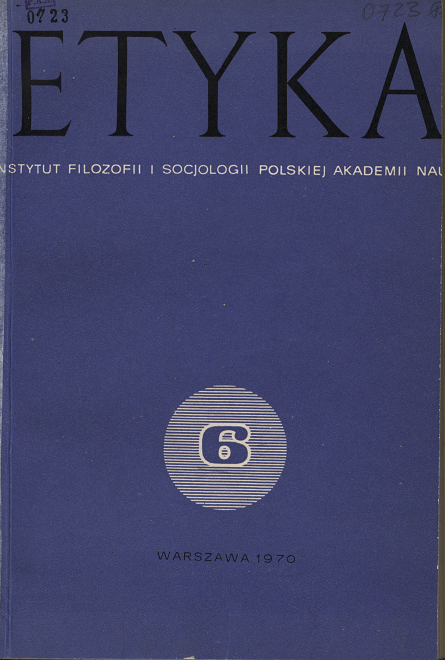Miejsce pracy w Marksowskim humanizmie
Abstrakt
The article deals with the attitude of Marx and Engels towards the appraisal of labour as a value, and the relation between labour and the implementation of the principle of universal development of the individual personality. First, the changes in their views on the appraisal of labour are discussed. In his Economic and Philosophical Manuscripts Marx understood labour as a spontaneous expression of human thought and the formation of a new environment in which man recognizes his own qualities. In that period Marx considered value to be an affirmation of human life and a requirement put to the individual and to society. In his later, mature works Marks refused to consider an act of labour as value and defined it as conquering nature. The act of labour was to Marx no longer a value but a process which is giving value to human products and, therefore, is a necessary condition of human existence in all social systems. Marx did not regard the act of labour as a postulate or an ideal. In his opinion, the act of labour acquired value depending on its effects for the universal development of all individuals. The Marxian ideal of a perfect man implied a series of postulates relating to the organization of labour. The author criticizes Raymond Aron’s interpretation of Marxian humanism. In the works of Marx, Aron perceives a contradiction between the postulate of universal labour and the postulate of leisure in the meaning of condition in which the idea of the perfect man is realized. According to the author, from the ideal of a perfect man results the postulate of obligatory labour for all members of the society, i.e., that everybody should contribute to the development of the productive forces in order to secure the material conditions for the development of their personality. The realization of Marxian humanism requires also the maintenance of definite proportions between labour determined by the social division of labour (necessary in this sense), and leisure which should imply not only resting but also activity towards a free development of various individual abilities. In the works of Marx there is no contradiction but a complementary relation between labour and leisure. PobierzPobrania
Opublikowane
Numer
Dział
Licencja
Prace publikowane w czasopiśmie ETYKA udostępniane są na podstawie licencji Creative Commons Attribution No Derivatives 4.0 International (CC BY-ND), tj. uznanie autorstwa-Bez utworów zależnych. Oznacza to, że Autorki i Autorzy zachowują autorskie prawa majątkowe do utworów i wyrażają zgodę, aby ich prace były zgodnie z prawem ponownie wykorzystywane do dowolnych celów, także komercyjnych, za wyjątkiem tworzenia utworów zależnych (dzieł pochodnych), bez konieczności uzyskania uprzedniej zgody ze Autora lub wydawcy. Artykuły mogą być pobierane, drukowane, powielane i rozpowszechniane z zastrzeżeniem konieczności poprawnego oznaczenia autorstwa oraz oryginalnego miejsca publikacji. Autorzy zachowują prawa autorskie do wspomnianych utworów bez innych ograniczeń.



